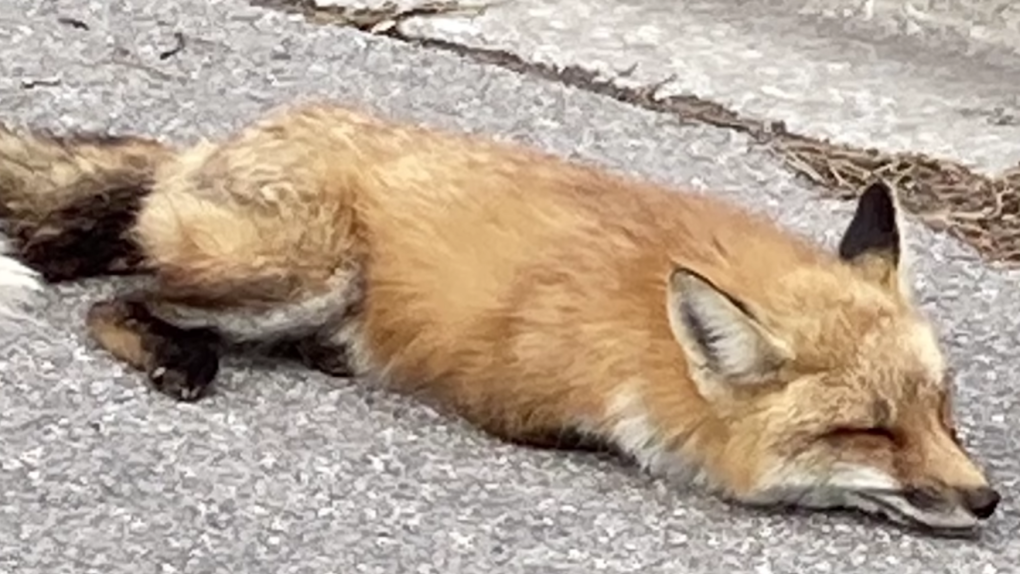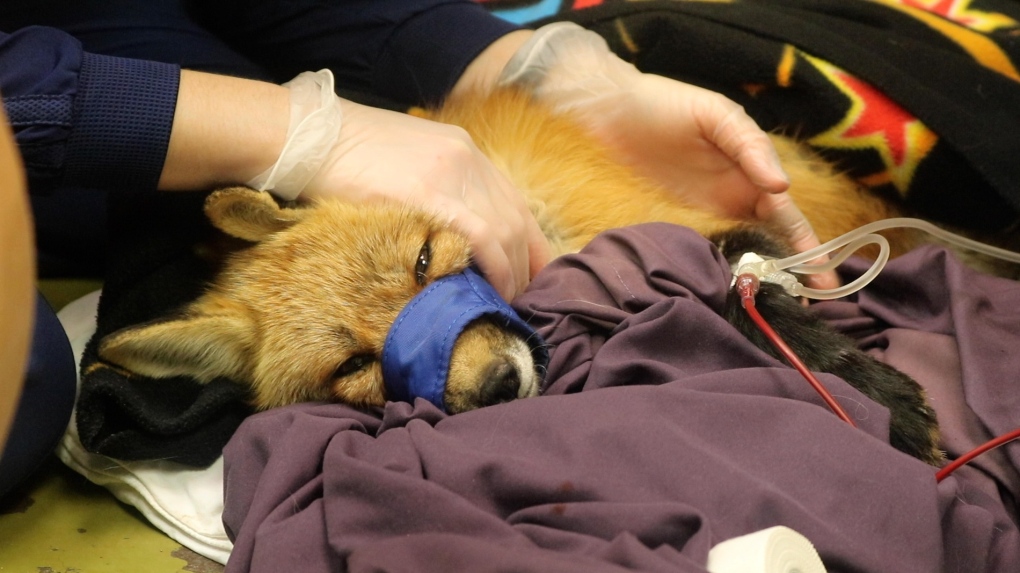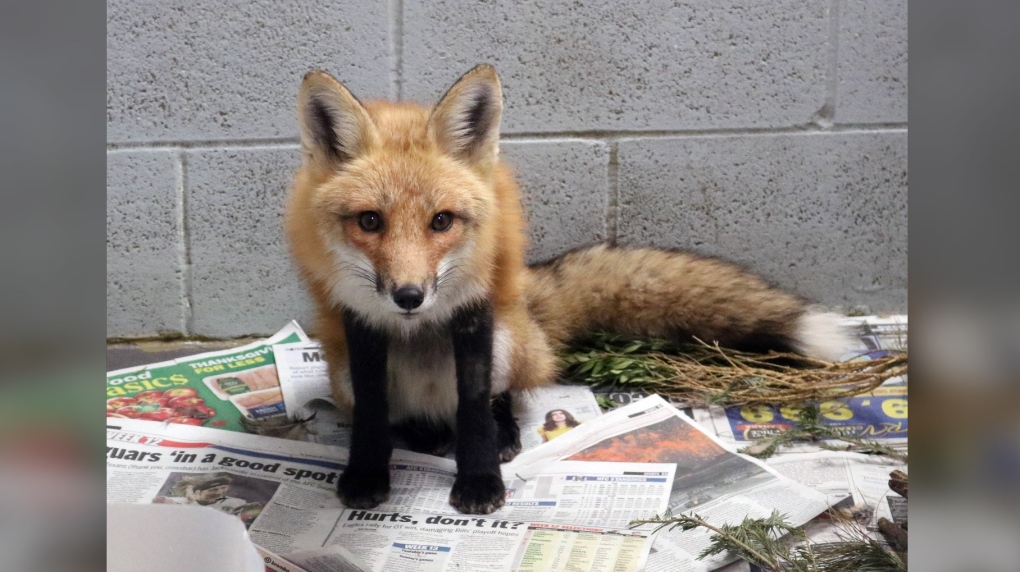A male red fox that was gravely ill due to what appeared to be the effects of rodent poison is now on the mend at the Toronto Wildlife Centre (TWC) after receiving an innovative inter-species blood transfusion.
The animal in question was found stumbling on the road by a passerby on March 27 in North York, near Lawrence Avenue East and Don Mills Road.
Worried that it had been hit by a car, the woman called TWC’s hotline to get the animal some help.
Soon after, the centre’s rescue team arrived at the scene and was able to easily capture the unwell fox, which was behaving in an odd way and seemed to faint after being caught, the North York-based organization relayed in a news release.
The team then rushed the animal to their wildlife rehabilitation facility near Downsview Park for treatment.
The red fox was weak, lethargic, pale, and bleeding from minor wounds and orifices, Nathalie Karvonen, TWC’s CEO, told CP24.com during an interview.
 A sick red fox was found on the road in North York on March 27. (TWC photo)
A sick red fox was found on the road in North York on March 27. (TWC photo)
She said that the symptoms it was experiencing pointed to secondary rodent poisoning, meaning that the fox likely ate a rodent that had been poisoned.
Karvonen noted that it’s very difficult to determine exactly what poisonous substance the animal may have ingested, however one of their in-house wildlife veterinarians, Dr. Cameron Berg, was confident in his rodenticide poisoning diagnosis.
She said that he then approached her about trying out a novel treatment method on the severely anemic red fox: a blood transfusion from a dog.
“Foxes are from the same classification as dogs. (Dr. Berg) told me that he thought it was worth trying and I certainly supported him,” Karvonen said.
With her approbation, Berg then transfused less than a bag of dog blood into the sick red fox. The blood was obtained from an emergency veterinary clinic, Karvonen said.
 A red fox believed to have ingested rodent poison receives a dog blood transfusion at the Toronto Wildlife Centre. (TWC photo)
A red fox believed to have ingested rodent poison receives a dog blood transfusion at the Toronto Wildlife Centre. (TWC photo)
In no time, the fox started showing signs of improvement and has been getting better every day since.
“It’s very exciting,” said Karvonen, who has since shared the positive outcome with her contacts at other wildlife rehabilitation organizations.
“It’s the first time we’d done such a procedure.”
At this time, the red fox remains at TWC as it completes a 30-day Vitamin K treatment for rodenticide poisoning, but is expected to be returned back to where it was found in the wild in about a week’s time, she said.
“He’s looking great. He’s eating well. He’s stable. He looks really good,” Karvonen said, adding that the animal is behaving like any red fox would and is “feisty, fearful of people, and eager to get back in the wild.”
“(This fox) is very lucky that he was caught in time.”
 A red fox believed to have ingested rodent poison is recovering at the Toronto Wildlife Centre after receiving a dog blood transfusion. (TWC photo)
A red fox believed to have ingested rodent poison is recovering at the Toronto Wildlife Centre after receiving a dog blood transfusion. (TWC photo)
Toronto Wildlife Centre, which does not receive any government support and is completely reliant on donations to operate, has since shared a short video of the red fox’s unique story.